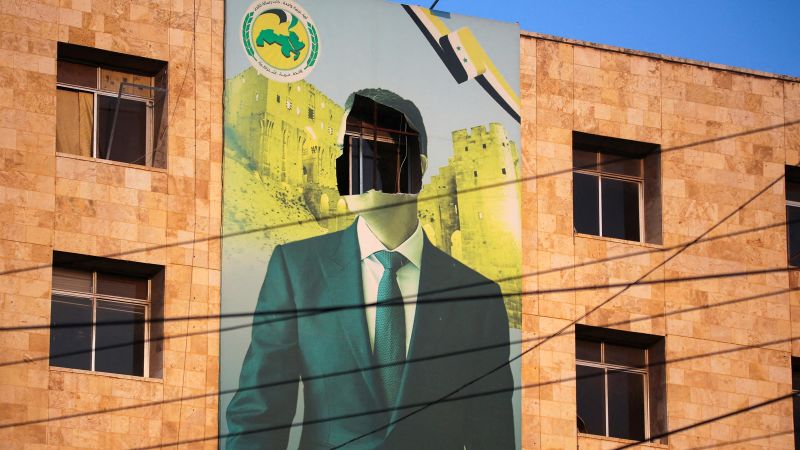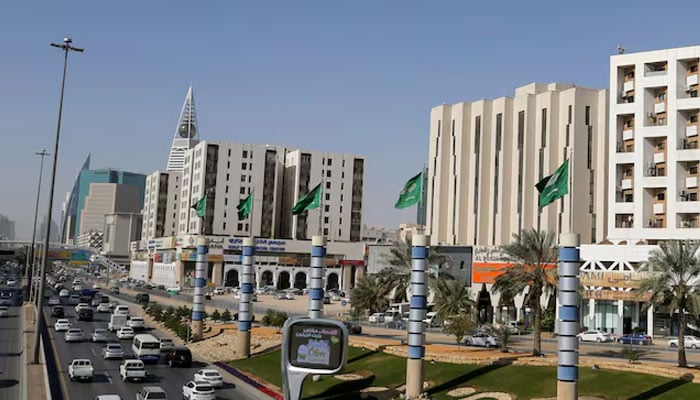
The surprise offensive on Aleppo by Syrian rebel groups has left the US in the difficult position of not fully supporting either side while also maintaining a force posture of nearly 1,000 troops in Syria as part of the ongoing mission to fight ISIS. Maj. Gen.
Pat Ryder, the Pentagon press secretary, on Monday distanced the US from the offensive last week, in which rebel groups quickly advanced on and took Aleppo, Syria’s second-largest city, for the first time in years. “Let me be clear that the US is in no way involved in the operations you see playing out in and around Aleppo in northwestern Syria, which as you know are being led by Hayat Tahrir al-Sham, a designated terrorist organization,” he said in reference to a group known as HTS, adding that the US “is urging de-escalation.” The dilemma for the US was further put into focus by national security adviser Jake Sullivan, who told CNN on Sunday that HTS is a “a terrorist organization designated by the United States.

So, we have real concerns about the designs and objectives of that organization.” “At the same time, of course, we don’t cry over the fact that the Assad government, backed by Russia, Iran and Hezbollah, are facing certain kinds of pressure,” Sullivan added. “So, it’s a complicated situation.
It’s one we’re monitoring closely, and we’re staying in close touch with regional partners about it.” The founder of HTS, Abu Mohammad al-Jolani, previously started a different group, an al Qaeda Syrian affiliate called Jabhat al-Nusra. And despite efforts by HTS to distance itself from al Qaeda, the US designated the group a terror organization in 2018, saying it evolved from the original group, Jabhat al-Nusrah.
“As you know, they are formerly known as ‘Nusrah Front,’ an al Qaeda affiliate in Syria, but bottom line is: still a designated terrorist organization,” Ryder said Monday of HTS. Meanwhile, State Department spokesperson Matthew Miller said later Monday that the US would not lift its sanctions on President Bashar al-Assad’s regime, which he said has shown “no change in behavior.” The US has applied more sanctions to the regime since 2011, when uprisings in the country began, to cut off needed resources as a result of the government’s violence against civilians and “to pressure the Syrian regime to allow for a democratic transition as the Syrian people demand,” according to the State Department.
Amid the renewed unrest in the country, roughly 900 US service members are deployed in Syria as part of the anti-ISIS mission. And while the operations in Aleppo are on the other side of the country from where US forces are operating, the instability — and primarily, Russia’s response in assisting the Assad government — has resulted in the US military communicating with Moscow to prevent “miscalculation.” In response to the surprise advance on Aleppo, Russia — a main supporter of the Syrian regime — launched an aerial offensive against armed opposition forces in the Aleppo and Idlib provinces.
Ryder said Monday that the US general in charge of the coalition mission to defeat ISIS in Iraq and Syria has now spoken with Russian officials on a preestablished hotline. “My understanding is that the CJTF-OIR commander has used the hotline that we have with Russia to ensure that we have open lines of communication, given the fact that we do have forces operating in fairly close proximity — as it relates geographically — to Syria,” Ryder said Monday. “I won’t go into details about those conversations, other than we have that communication mechanism to prevent potential miscalculation.
” Meanwhile, US and coalition forces in the country are coming under fire as they have for nearly the last year. Asked about reports of attacks over the last 24 hours, Ryder said there was a “rocket attack against one of our facilities in Syria,” though no US personnel were injured and no infrastructure damage was reported. And on Friday, he said, US forces conducted a “self-defense strike near MSS Euphrates,” taking out a potential threat to the US base.
There were also no injuries or infrastructure damage reported in that incident. Ryder said that was “completely unrelated to the ongoing situation in northwestern Syria.” He added that there have not yet been any US force posture changes in Syria.
CNN’s Jennifer Hansler and Michael Conte contributed to this report..










